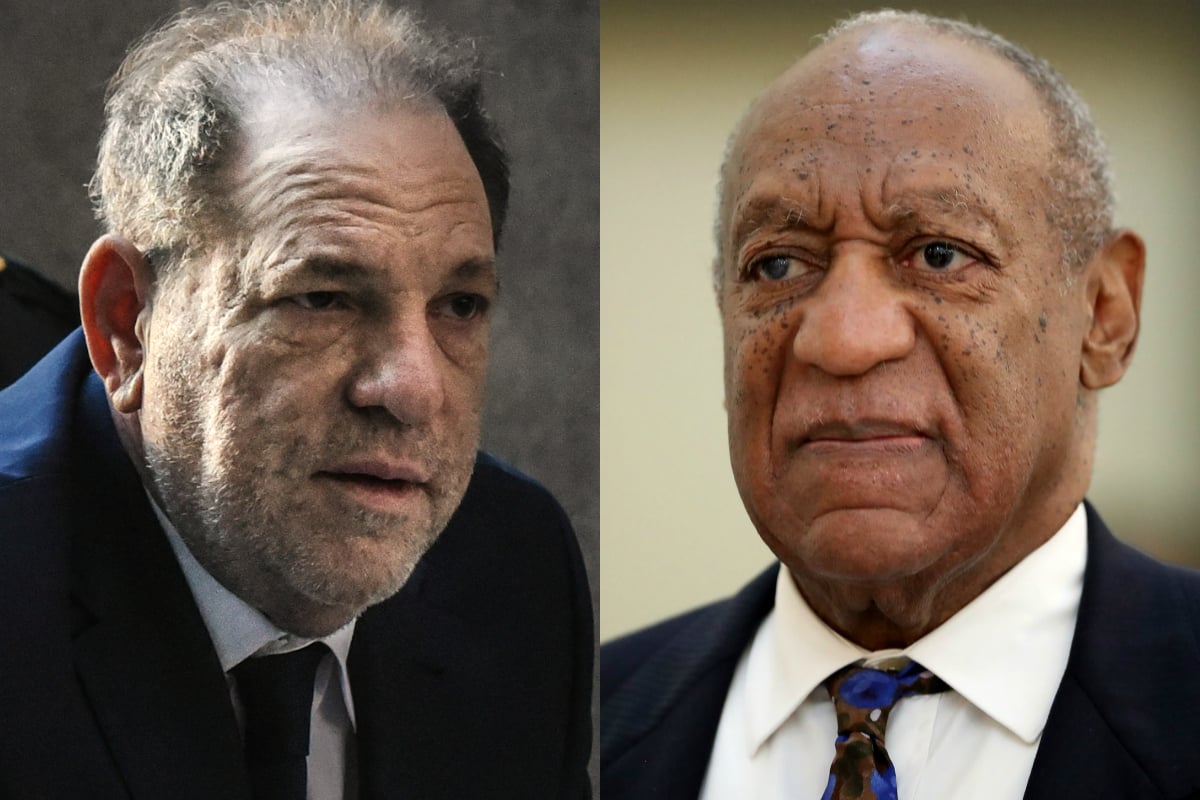
Many parallels have been drawn between the sexual assault trials of Hollywood producer Harvey Weinstein and comedian Bill Cosby.
Both involved powerful men, guilty of exploiting vulnerable women whose careers they held in their hands. Both offended with impunity for decades until survivors felt empowered to speak up. And both resulted in convictions that are considered landmark victories of #metoo-era justice.
But there’s an even more direct bridge between these cases. And her name is Dr Barbara Ziv.
Watch: After decades of predation, Harvey Weinstein has been found guilty.
As a forensic psychologist who specialises in rape crimes, Dr Ziv was called upon as an expert witness for prosecutors seeking to convict each of the men.
Her role in Cosby’s 2018 retrial in Philadelphia and Weinstein’s 2020 case in New York was to share her expertise regarding how rape and sexual assault victims behave after an attack.
That topic was a key argument of the defence in each case. How could Weinstein really be a sexual predator, when several of his alleged victims kept in contact with him after their assault? How could we believe Cosby’s accusers when they took several decades to come forward?


Top Comments
That these men could carry on in the open for decades shows the sick culture of Hollywood. They even joked about Weinstein at awards ceremonies and the audience just laughed. Yet Hollywood constantly feels the need to moralise at the rest of us.
Yes, this has been my main take from the Weinstein case. All these Hollywood celebrities lecturing us on morality and social responsibility have been knowingly working with a sexual abuser all these years.
And so they create the #metoo movement to lecture the rest of us on how to fix their moral degeneracy.
I think Weinstein is just one symptom of the abuse that is the default standard of Hollywood culture if insiders are to be believed. Add to that the drug use and infidelity and I’m wondering why on earth their moralising at us is not met with loud scorn from all quarters.
It seemed to be common public knowledge for decades and he was even mentioned in various Awards to be wary of (a haha joke of course)- so I'm baffled too.
So it sounds like protecting a career.
And no .. I'm not defending this guy, I'm wondering why Celebs caved in when it was so commonly known in the industry.
This exactly what happened with the victims of Michael Jackson. They were torn to shreds and their credibility questioned.
Alleged victims. A jury found him not guilty after both sides presented their cases.
He paid at least one of the accusers off.
On the basis of no admission of liability?